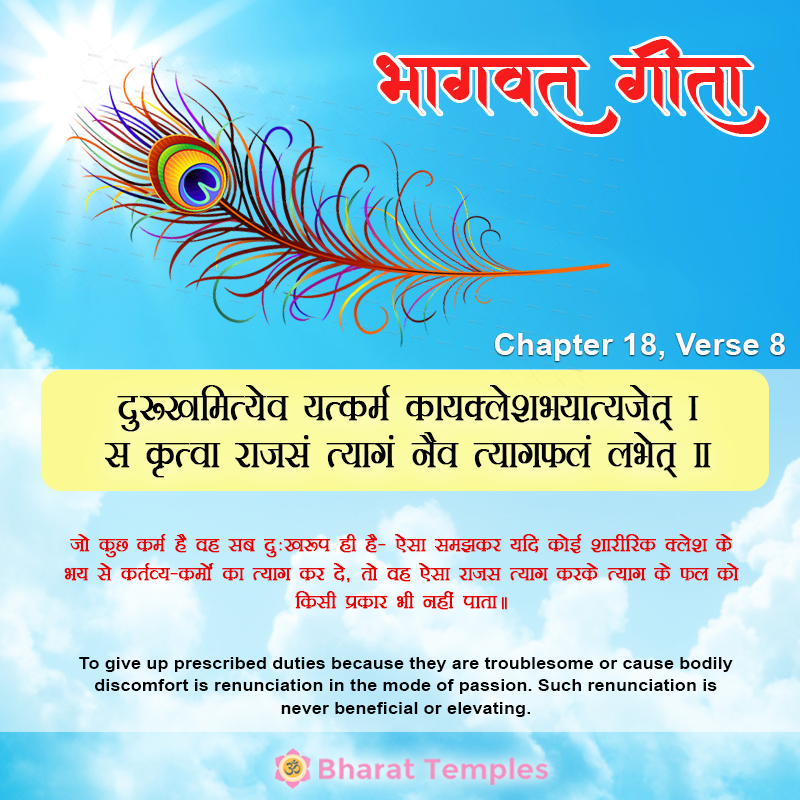Contents
दु:खमित्येव यत्कर्म कायक्लेशभयात्यजेत् |
स कृत्वा राजसं त्यागं नैव त्यागफलं लभेत् ||
duḥkham ity eva yat karma kāya-kleśha-bhayāt tyajet
sa kṛitvā rājasaṁ tyāgaṁ naiva tyāga-phalaṁ labhet
भावार्थ:
जो कुछ कर्म है वह सब दुःखरूप ही है- ऐसा समझकर यदि कोई शारीरिक क्लेश के भय से कर्तव्य-कर्मों का त्याग कर दे, तो वह ऐसा राजस त्याग करके त्याग के फल को किसी प्रकार भी नहीं पाता॥8॥
Translation
To give up prescribed duties because they are troublesome or cause bodily discomfort is renunciation in the mode of passion. Such renunciation is never beneficial or elevating.
English Translation Of Sri Shankaracharya’s Sanskrit Commentary By Swami Gambirananda
18.8 Yat, whatever; karma, action; tyajet, one may relinish, eva, merely; iti, as being; kuhkham, painful; [As being impossible to accomplish.] kaya-klesa-bhayat, from fear of physical suffering, out of fear of bodily pain; sah, he; krtva, having resorted; tyagam, to renunciation; rajasam, based on rajas, arising from rajas; will eva, surely; na labhet (shuld rather be labhate), not acire; tyaga-phalam, fruits of renunciation, the result called Liberation, which follows from renunciation of all actions as a conseence of Illumination.
Which, again, is the renunciation based on sattva?

